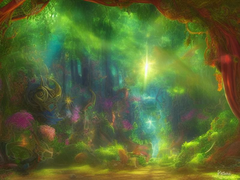.png)
Understanding Indonesia’s Diverse Culture and Heritage
Indonesia is a country renowned for its rich cultural diversity and heritage. Located in Southeast Asia, it comprises thousands of islands, each with its unique traditions, languages, and customs. This diversity is reflected in its vibrant festivals, traditional arts, and historical sites. From the bustling cities to serene rural areas, Indonesia offers a fascinating blend of old and new, influenced by various cultures throughout history.
Historical Influences on Indonesian Culture
Indonesia’s cultural landscape has been shaped by a myriad of influences, including Indian, Chinese, Arab, and European. Historical trade routes and colonial history have left a significant mark on the country. Hinduism and Buddhism, introduced by Indian traders, greatly influenced the architecture and art, evident in ancient temples like Borobudur and Prambanan. The arrival of Islam brought new cultural practices, while European colonization introduced Western styles and modern influences.
Traditional Festivals and Celebrations
Indonesian festivals are a testament to the country’s rich cultural tapestry. The Balinese Day of Silence, known as Nyepi, is a unique Hindu celebration where the island observes a day of reflection and silence. Similarly, the Javanese tradition of Sekaten celebrates the birth of the Prophet Muhammad with grand processions and cultural performances. These festivals offer a glimpse into the diverse traditions that define Indonesian culture.
Preserving Indonesian Heritage
Efforts to preserve Indonesia’s cultural heritage are crucial for maintaining the country’s identity. Various programs and initiatives aim to protect traditional crafts, languages, and historical sites. UNESCO’s recognition of sites like the Cultural Landscape of Bali Province and the Komodo National Park highlights the importance of preserving these treasures. Engaging local communities in heritage conservation ensures that Indonesia’s rich cultural legacy continues to thrive for future generations.
In conclusion, Indonesia’s cultural and historical diversity is a treasure trove of traditions and stories. Understanding and preserving this heritage is essential for appreciating the country’s unique identity. Through festivals, historical sites, and conservation efforts, Indonesia maintains its rich cultural legacy while embracing modernity.









